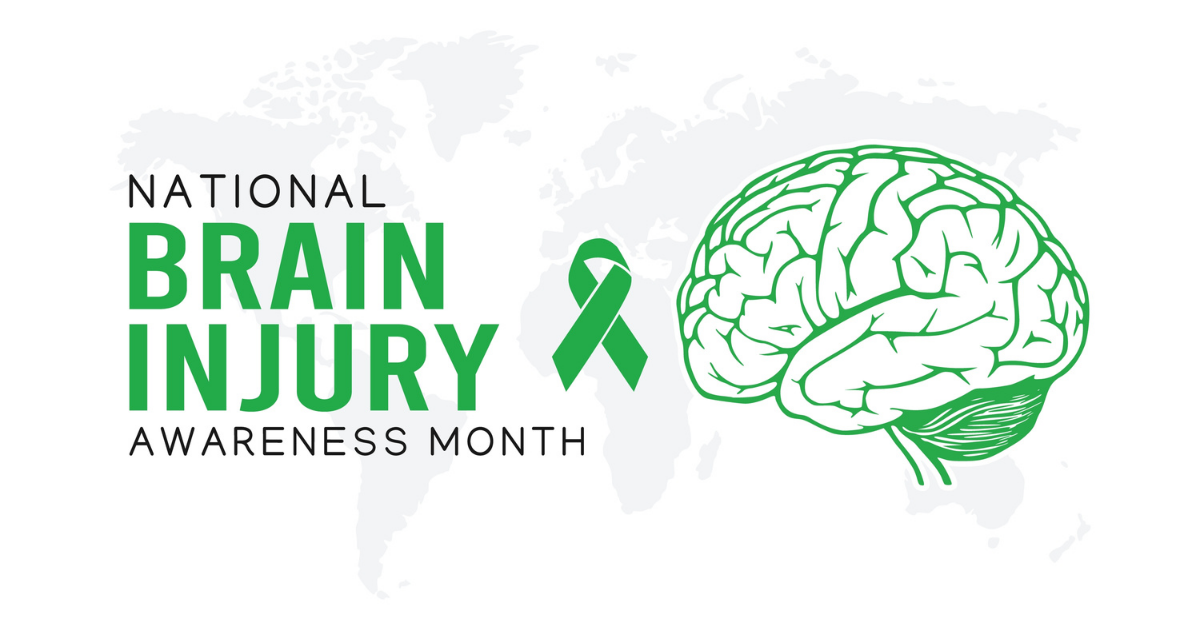
March is Brain Injury Awareness Month!
The Perecman Firm, P.L.L.C., is proud to support the Brain Injury Association of America (BIAA) in its efforts to educate the public about traumatic brain injuries (TBI) and their often misunderstood consequences.
More Than My Brain Injury
According to the BIAA, there are over 5.3 million children and adults in the U.S. with a permanent brain injury-related disability – that’s 1 in every 60 people.
For those living with a brain injury, their conditions are more than an event or outcome. They are an often misunderstood and misdiagnosed neurological condition.
As part of its #MoreThanMyBrainInjury campaign, BIAA works to educate people about what it’s like to live with a brain injury and:
- Improve understanding about brain injury as a chronic condition
- Reduce the stigma associated with brain injuries
- Showcase the range of injuries and victim demographics
- Improve research, care, and support for brain injury victims and their families
Learn more about Brain Injury Awareness Month.
Brain Injuries: Types & Causes
When people talk about brain injuries, they are referring to acquired brain injuries (ABI). An acquired brain injury is any injury to the brain that is not hereditary, degenerative, or present at birth.
Some examples of acquired brain injuries:
- Traumatic brain injuries (TBI) are a type of ABI caused by trauma to the brain from an external force. The leading causes of TBI include falls, struck-by object accidents, motor vehicle accidents, and assaults.
- Hypoxic or anoxic brain injuries, which result from oxygen deprivation. This type of brain injury can result from stroke, substance abuse / overdose, electric shock, drowning or near-drowning, infectious disease, and medical malpractice.
Brain Injury Symptoms
Brain injuries may all share a potential for profound and permanent repercussions, but how they affect each person is largely unpredictable. Some people who suffer severe brain injuries may experience only mild adverse reactions in the long-term, while others may suffer life-altering effects.
Some things we do know:
- Recovery may take weeks, months, or years and typically slows with time.
- Those affected by these injuries may suffer long-term, sometimes lifelong, effects.
- Brain injuries affect entire families and may require special care and support.
- Victims may experience physical and emotional symptoms and may face difficulties with daily tasks, returning to work, memory and cognition, and relationships.
- Brain injuries may increase the likelihood of headaches, fatigue, seizures, depression, cognitive decline and degenerative diseases like Parkinson’s or dementia.
For many years, brain injury research focused on the immediate period of time after an injury occurred. While this has helped develop interventions that can save lives and mitigate some consequences of brain damage, it has become clear brain injuries function as a chronic disease with a slow, progressive, and irregular timeline.
Occupational Brain Injuries
Though brain injuries can occur in many different ways, they are an especially concerning risk for workers in certain occupations, including construction.
Common work-related brain injury risks:
- Falls from ladders
- Scaffolding accidents
- Falling objects
- Machinery accidents
- Vehicle accidents
- Toxic exposure
- Trench and tunnel work
- Demolition and building collapse
- Electric shock / electrical accidents
- Worksite trip and falls
Preventing Brain Injuries in the Workplace
Most occupational brain injuries can be prevented when workers, employers, and safety site managers take steps to ensure safety and protect themselves and others.
Tips for Workers
- Always wear proper personal protective equipment (PPE) and headgear when working from heights or in areas where there are risks of falling objects.
- Ensure protective headwear fits properly and securely.
- Wear proper footwear to decrease risks of slips, trips, and falls.
- Follow all workplace safety guidelines when performing work from heights.
- Keep common worksite areas and walkways free from debris and tripping hazards.
- Exercise caution when operating vehicles and heavy equipment.
- Stay vigilant and aware of your surroundings, especially on busy or multi-employer worksites.
For Employers
- Ensure workers are provided with high-quality, undamaged head protection and PPE that meet applicable standards, including ANSI standards.
- Adopt comprehensive fall protection and height-related hazard guidelines.
- Implement self-auditing to regularly assess safety policies and make changes as needed.
- Address unsafe worksite conditions promptly by repairing, replacing, and / or adequately warning about potential hazards.
- Ensure all machinery, equipment, vehicles and tools are in working order and properly serviced.
Seeking Compensation After a Brain Injury
If you or someone you love has suffered a brain injury while performing work-related duties, you may be able to bring a civil personal injury claim against the responsible party outside of the workers’ compensation system. Depending on the facts, this could be a general contractor, developer, or property owner that failed to comply with the New York labor law or ensure safety on a worksite.
At The Perecman Firm, P.L.L.C., our award-winning attorneys have recovered millions in compensation for workers injured on the job – including those who sustained brain injuries due to falls, falling objects, and other workplace accidents. We represent injured workers in both workers’ compensation proceedings and any civil claims they are able to bring against third-parties.
If you have a potential case, contact us to learn more about your rights and legal options.



